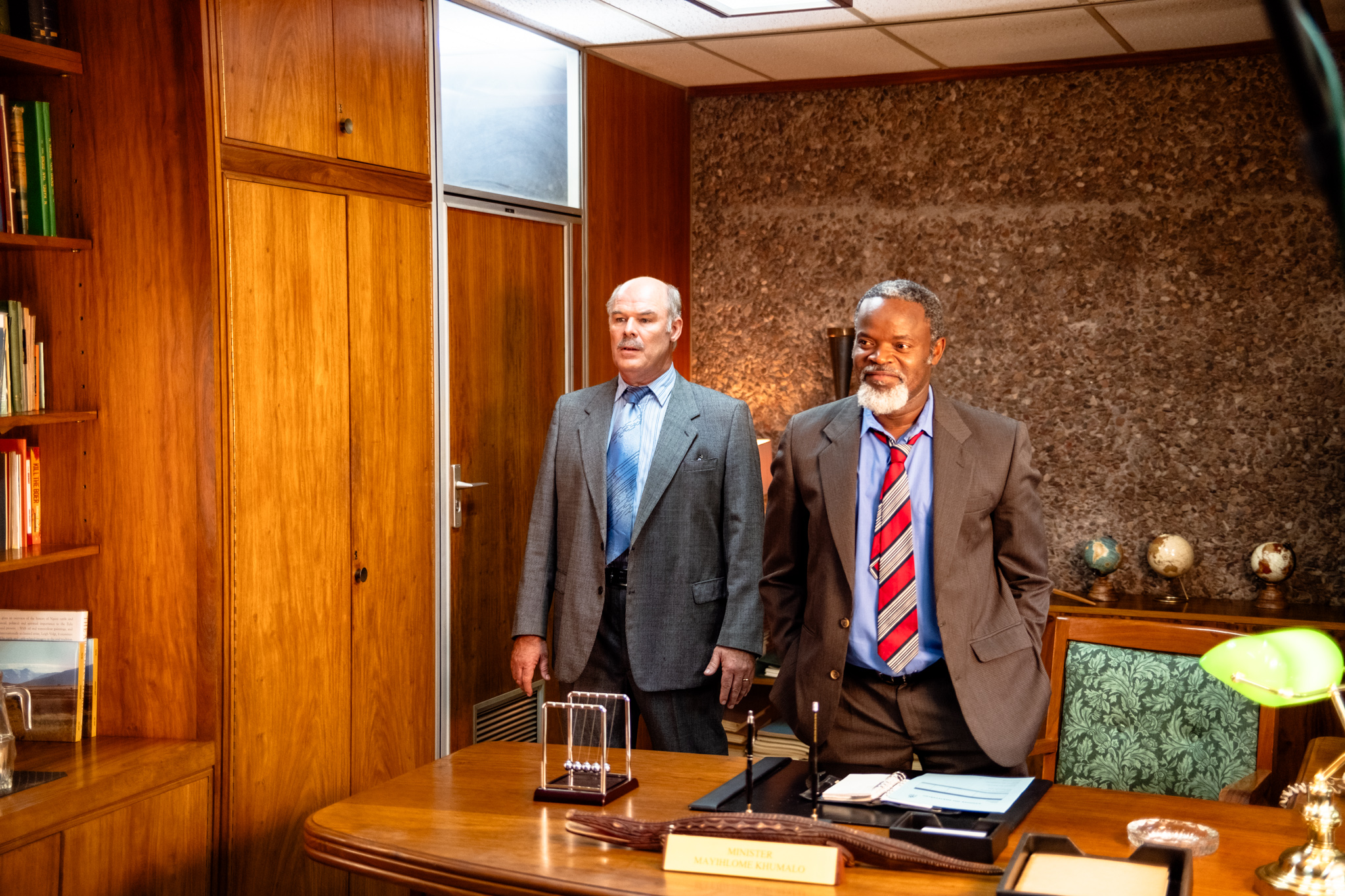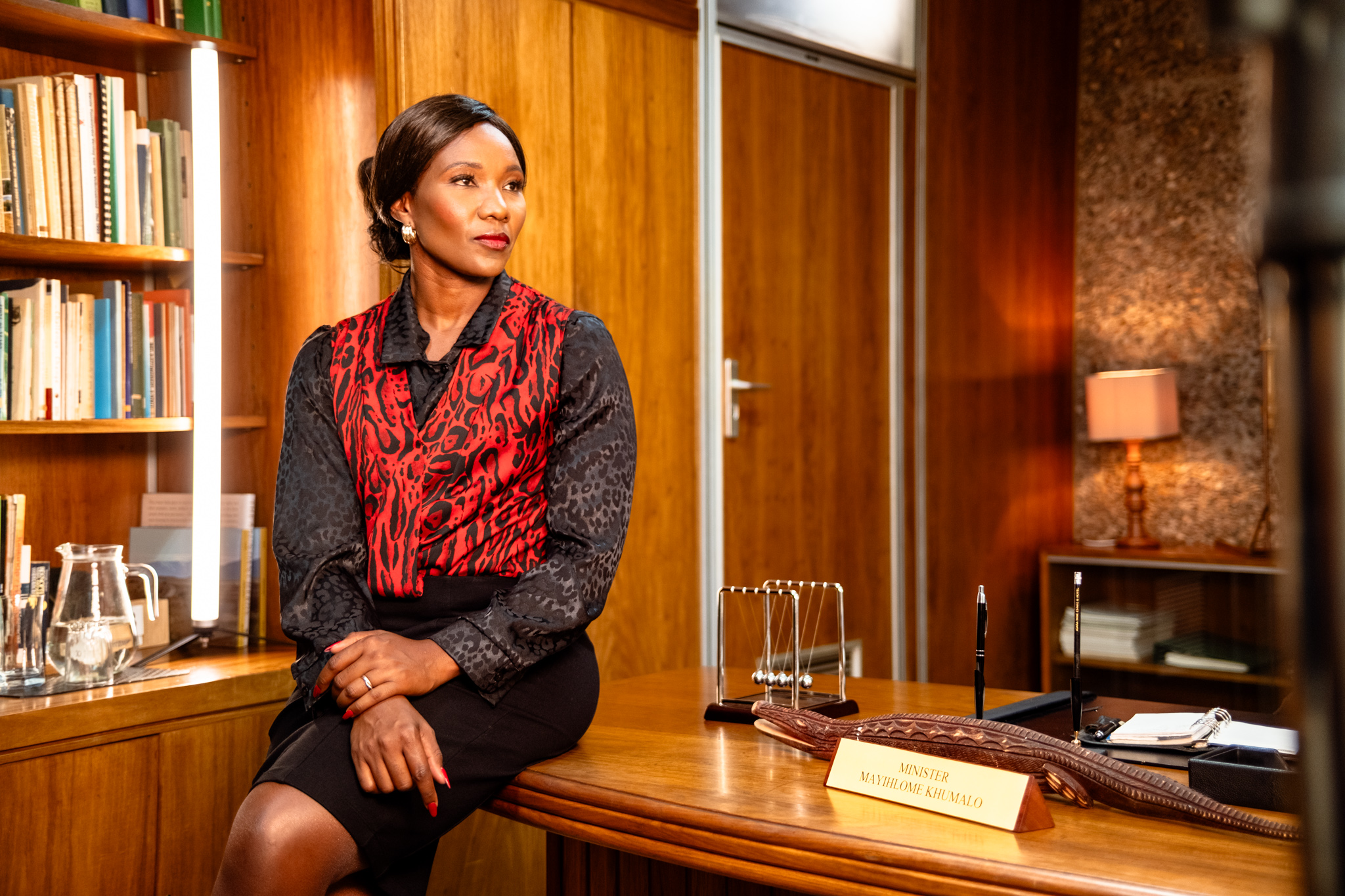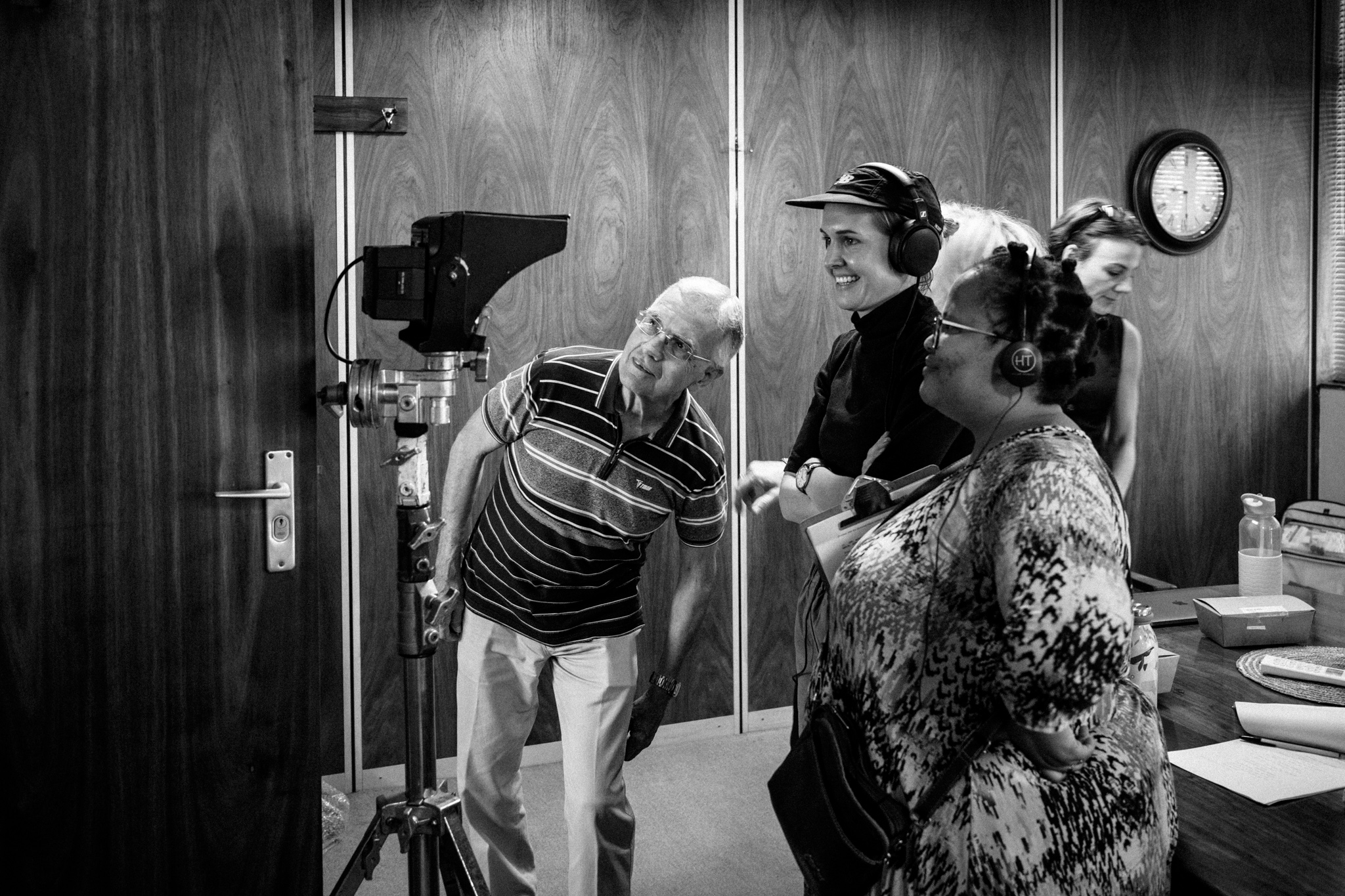


Short Film Project – Rising Filmmakers: Marie se laaste dag
Journalist Lourensa Eckard is known as presenter of kykNET’s actuality programme In gesprek, and she is a presenter of Carte Blanche on M-Net. But despite keeping herself busy with groundbreaking topics every day, Lourensa loves humour and laughter. This explains her debut as director and screenwriter of a comedic film depicting an ordinary woman’s perspective on an important era in South African history.
In Marie se laaste dag, written by Lourensa in collaboration with author and theatre maker Mercy Kannemeyer, we meet Marie (Mandri Sutherland), the trusted secretary of the Minister of Mineral Resources, Hendrik van der Merwe (Deon Lotz).
On the first day of the newly formed government of national unity (GNU), Marie is tasked to arrange a meeting for her boss with newly appointed Defence Minister, Mayihlome Khumalo (Dumisani Mbebe). Marie is ready to embrace the ideals of the New South Africa, with a helping hand from Thandi (Rozanne McKenzie), Minister Khumalo’s secretary who wears hot-red lipstick.
Lourensa answered a few questions about her short film.
What made you take the leap from news and actuality to fiction and moviemaking?
I wanted to challenge myself in a new field. My daily work is very serious. But I enjoy humour. News journalists are known for their excellent sense of humour, because if you don’t laugh, you will cry the whole day long …
I also love reading and movies, so Mercy Kannemeyer and I decided to take a chance and submit our concept.
How did your writing partnership with Mercy come about?
Mercy, who has a background in television and theatre, started working as a production manager for In gesprek. We started discussing politics and speculated how coalitions will play out after the 2024 election, while drawing comparisons with the election in 1994. I was curious about the stories of ordinary people that were never told. We then started playing with the idea of what the first day of the GNU in 1994 would have been like.
Mercy has considerable experience in working with texts for theatre and television, so I asked her if my idea had any potential. We then started developing the story.
Why did you decide to tell the story from Marie’s point of view?
Right from the start, I was adamant that the movie should be presented from a woman’s perspective. In any organisation, whether in today’s world or thirty years ago, there is a woman who runs the show from behind the scenes; the secretary or the admin lady. The one who has all the answers and will sort you out immediately.
The GNU ministers all had secretaries who kept things going. My question was: How did those women experience the transition?
So many books had been written and documentaries produced about the experience of men in our history, about national service in particular, but the women who were assigned to perform administrative tasks, were actually the ‘conscripts’ who abetted the construction of a brutal system. They were told, ‘The enemy is coming for you.’ Until one day when all those threats suddenly disappeared. At first, some people struggled to cope with the new dispensation, but many others, like Marie, were at least willing to make an effort.
Is Marie’s story based on the truth?
The character is 100% fictional and she offers a perspective on a quite recent history. With Marie’s story we posed the question of how the country’s history would have been different if alternative decisions were made. I didn’t want to make a movie that is historically accurate, because I wanted viewers to be able to ask, ‘What if?’.
Comedian Mandri Sutherland is a perfect choice for the role. Did you have her in mind while writing the screenplay?
Indeed! When I started exploring the character, I was pretty sure the movie would not be a success without Mandri involved. Marie has a certain innocence about her, but at the same time she possesses real power, and Mandri was able to capture that perfectly.
Rozanne McKenzie is known for her work as television and radio presenter, as well as a voice artist, but her portrayal of Thandi in this movie marks her film debut?
Rozanne studied drama, but she also has experience in the news world. I have always been aware of her terrific sense of humour and her professionalism. She has made Thandi her own. Contrary to Marie, a typical wall flower who puts other people’s needs first, Thandi is sexy and in charge. I wanted Marie to admire Thandi, rather than be shocked by her.
As a first-time director, what was it like to work with iconic actors such as Deon Lotz and Dumisani Mbebe?
It was very intimidating to work with these experienced men. But I was surprised and grateful when they immediately agreed to be part of the project and that they believed in the story.
Initially I thought, ‘Who am I to give these people notes on their performances?’ But they deliberately chose my guidance. This made the project a team effort from the outset.
Describe your approach as a director.
From the word ‘go’, I was completely honest with the actors about my take on the story, but I offered them the freedom to own their characters. I was gratefully surprised with the final result. Already in the first scene, the actors brought my idea and vision to life in ways I couldn’t even have imagined.
What is the role of the Silwerskerm Festival in creating opportunities such as these for new voices?
The mentorship was incredibly important and made the entire process less intimidating. It is profound when respected people in the industry take the time to ensure that one doesn’t feel overwhelmed.
